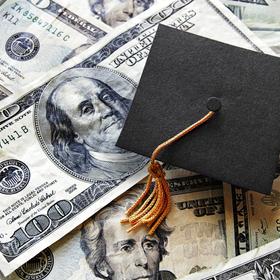Before You Spend $30k on Private School...
As I have often said on these pages, finding the right private school for your child is a process and a daunting process at that. There are a great many factors to consider. So, before you spend $30,000 or more on a year at a private school for your child, you need to ask five questions and be guided by the answers you receive:
1. Does it get the results you want?
2. Does what the school teaches comply with your requirements?
3. Will your child be happy there?
4. Is the school financially stable?
5. How will you pay for it?
There is a bit more to the process, of course, but asking these five questions will get you started on the extensive due diligence that you must do before you spend approximately $150,000 for four years of private day school or roughly $200,000 for four years of boarding school. Tuition varies from school to school. Some are much less. Some a great deal more. Also, we are only discussing high school and middle school. The primary grades will run you $8,000 - $15,000, depending on the school.
Another point to consider is that private schools in the United States are not subsidized by government funding. So they will charge whatever the market forces and their budgets determine can be charged and needs to be charged. Be aware that most private schools offer generous financial aid programs. Some schools will even pay for everything if you meet their family income thresholds. Always ask about financial aid.
Researching private schools is much like buying a house or renting an apartment. Besides all the practical considerations inherent in those major decisions, there are also many emotional factors that most certainly influence your final choice of a home. But you also are savvy enough to do your due diligence simply because you are investing so much money. Same with a private school. Your gut will tell you which one is right for your child. But do your research carefully.
1. Does it get the academic results you want?
Precisely, what kind of academic results are you looking for? Begin with where the school's graduates matriculate or go on to. If you feel that your child absolutely must attend an Ivy League college, the private high schools that you are looking at should send a large number of their graduates to the Ivies or similar top-tier colleges. If that doesn't matter to you - and I am not saying it should - then look at their lists of college acceptances carefully. Ask yourself if those are the colleges you had in mind for your child.
After reviewing the academics, are you looking for specialty subjects and activities such as the arts, robotics, crew, riding and so on? If so then inspect those programs and subject offerings thoroughly.
Here is an example of a tour of the school's academics, which you can find easily on YouTube. You want to watch as many of these as possible to understand your options.
2. Does what the school teaches comply with your requirements?
There are almost as many educational philosophies in private schools as there are private schools. Seriously. Why is there not more homogeneity? Simply because that's the whole point of private schools. Each one is unique. There are dozens of nuances and variations even within schools affiliated with affinity and religious groups. Is progressive education what you want? Or do you like the well-defined and highly structured programs, Advanced Placement, or International Baccalaureate curricula? The choice is yours. But be sure to explore the curriculum and the way it is taught. Assume nothing.
3. Will your child be happy there?
This is the ultimate goal of selecting the right private school for your child. You do not want a miserable child on your hands. On the other hand, you must realize that there will be a short period of adjustment while she gets used to her new surroundings, new friends, and her new teachers. If the school has a summer session, you might consider sending her to one. That way, there is a good chance that the school will miraculously become hers. Then it will be her idea to go there in the first place.
4. Is the school financially stable?
Many parents feel uncomfortable asking questions about a school's finances. Just remember that this is business. Furthermore, you are about to invest a substantial amount of money in the institution. As a result, it is important to know the financial condition of any institution to which you plan to send your child. It is similar to buying a condo only to discover three months after purchase that the condo association's reserves are insufficient to pay for a much-needed new roof. The last thing you want to face is an unexpected tuition increase or surcharge or worse. Prudent management of a school's resources will manifest in little things such as the general appearance of the grounds and facilities. Skimping on maintenance only delays the inevitable.
Where do you find the financial information you need? It is all online. Not-for-profit private schools have to file a tax return. These Form 990s, as they are called, are available online. Peruse the last few years' returns or, better yet, have your accountant peruse them and alert you to any red flags. He will most certainly be able to spot them.
This brief video explains how to read an institution's balance sheet.
5. How will you pay for it?
Not every child who attends private school comes from a family that can afford to write a check for tuition and expenses. Fortunately, most private schools proactively seek to diversify their student bodies as much as possible. Therefore, if you believe in the concept and spirit of private education but cannot afford to pay all or any of the expenses, do not hesitate to ask the school about financial aid. This is a question you must not put off until the end of the process. Be forthright and honest when you meet with the school admissions staff. They have the answers. And those answers may surprise you.
One final word of advice: Choose a private school like you would approach any significant project in your professional life. Gather the facts and seek opinions. Investigate schools by visiting them. Do not delegate this important part of the process to someone else. Finally, allow plenty of time for this project. Typically, it takes about eighteen months from start to finish.
Questions? Contact us on Facebook or Instagram. @privateschoolreview
#PrivateSchoolCosts #EducationInvestment #SchoolSelection #FinancialPlanning #ValueForMoney















